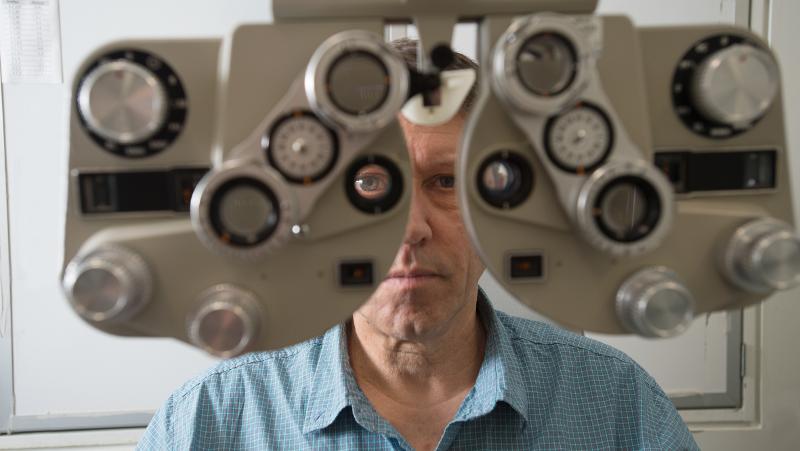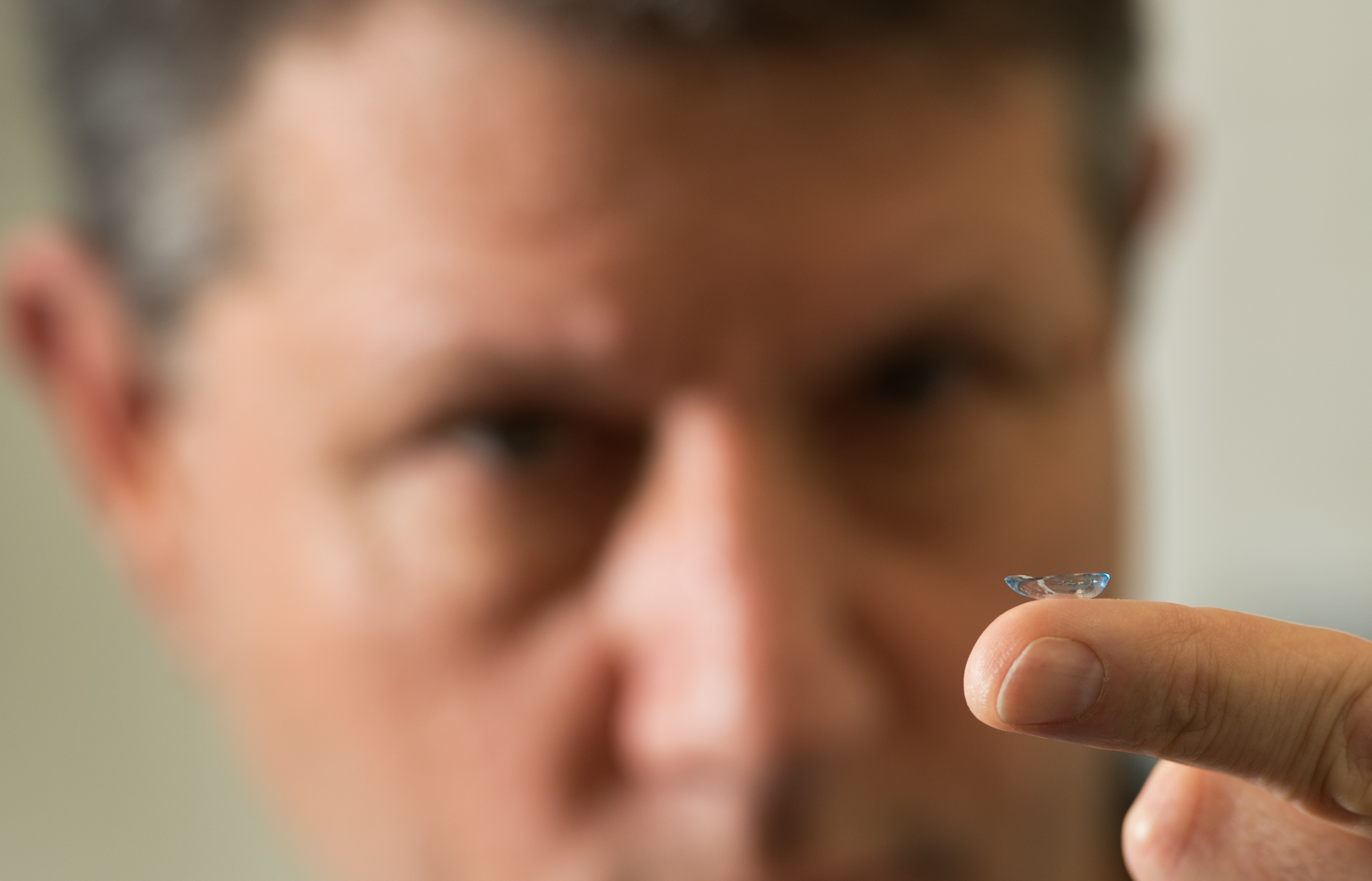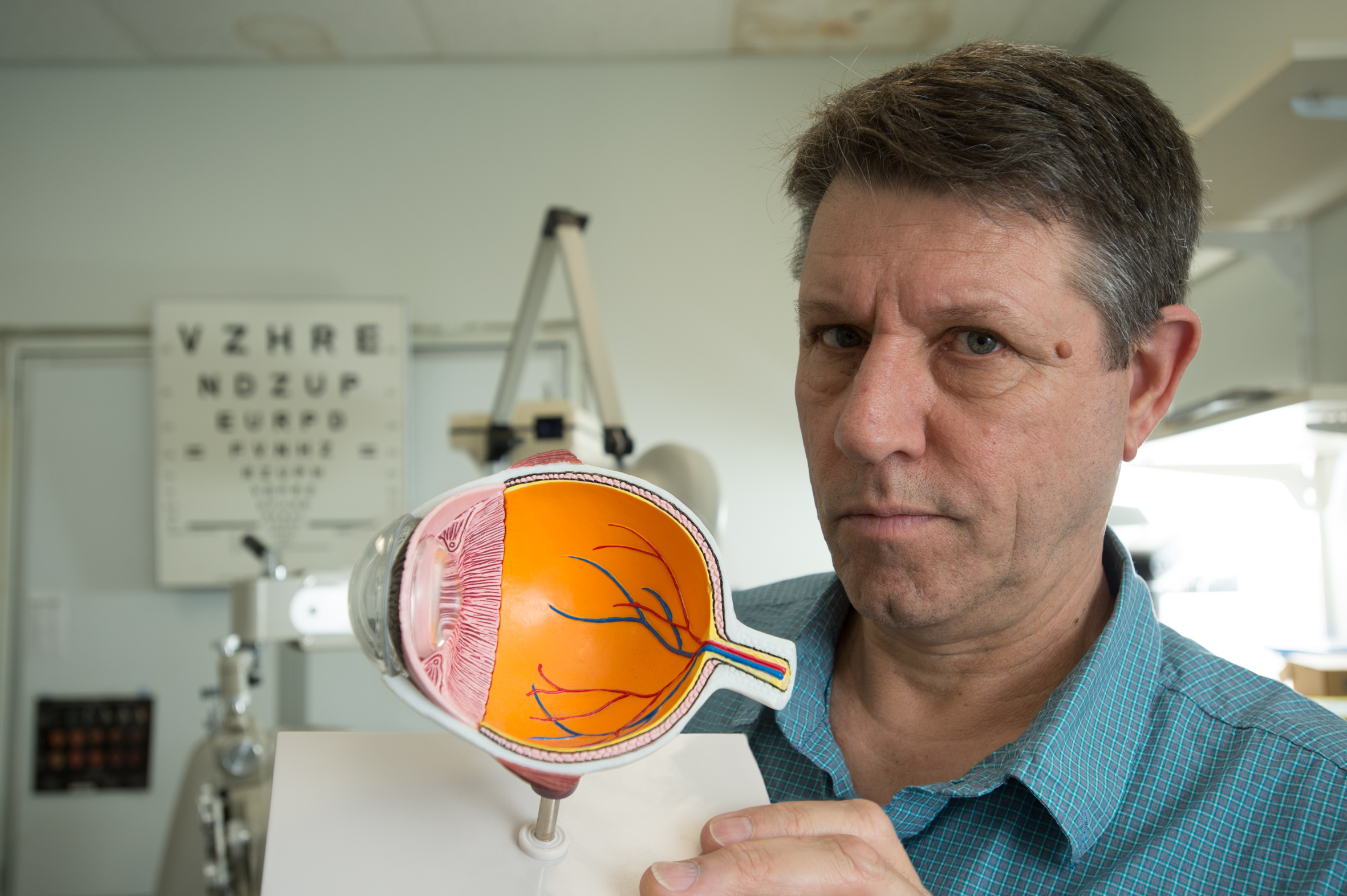
A new type of contact lens that can change your eye’s growth to stop your eyesight deteriorating is being developed in Brisbane, thanks to a research partnership between QUT’s Professor Michael Collins and Johnson & Johnson Vision - the world's largest contact lens manufacturer.
QUT has announced a new one-year agreement with Johnson & Johnson Vision, facilitated by Johnson & Johnson Innovation, to boost Professor Collins’ research into myopia (short-sightedness) and contact lens design.
This is the latest in a 20-year collaboration with Johnson & Johnson Vision, including 12 years’ support for QUT’s vital research into the global myopia epidemic.

“This new agreement with Johnson & Johnson Vision will help us better understand the development and progression of myopia, which affects around four million people in Australia and more than two billion people globally,” Professor Collins said.
“We are working to develop strategies to slow and stop myopia and, ultimately, to prevent it. Over the next year we will be developing optical designs for contact lenses that can slow your eye growth.
“Myopia is caused by the eye growing too long, resulting in a blurred image on the retina at the back of the eye.
“Usually contact lenses aim to provide clear vision over the whole area of the lens. But we are making certain regions of the lens have different optical powers and provide different focus of light on the retina at the back of the eye. This can change the eye’s growth and slow the progression of myopia.”
Professor Collins, from QUT’s Faculty of Health, said there were two main causes of myopia – genetic risk (having a history of it in your family) and environmental causes, such as doing lots of near-work (for example, reading).
“We now know that people who spend time at university and more time in schooling are more likely to have myopia. And we know that kids who spend more time outdoors and get more natural sunlight are less likely to get myopia,” he said.
“In Australia, myopia affects about 15 per cent of people and the figure appears to be rising over time. In countries like South Korea, Japan and Taiwan, the percentage is 70 to 90 per cent, which is attributed to a combination of lifestyle and genetics.”

Professor Collins said reducing and preventing myopia was not just about helping people see more clearly.
“People who are myopic have a greatly increased risk of developing other eye problems when they are older, such as retinal degenerations that can lead to partial blindness, so it’s very important to slow down myopia progression when you are younger,” he said.
Professor Collins has a background in clinical optometry and founded QUT’s Contact Lens and Visual Optics Laboratory in 1990, which currently has a team of 20 researchers. He is a member of the university’s School of Optometry and Vision Science and and Institute of Health and Biomedical Innovation (IHBI). He also runs the contact lens clinic at the QUT Health Clinics at Kelvin Grove, which are open to the public.
QUT Media contacts: Karen Milliner, 07 31381841 or k.milliner@qut.edu.au
After hours: Rose Trapnell, 0407 585 901 or media@qut.edu.au




